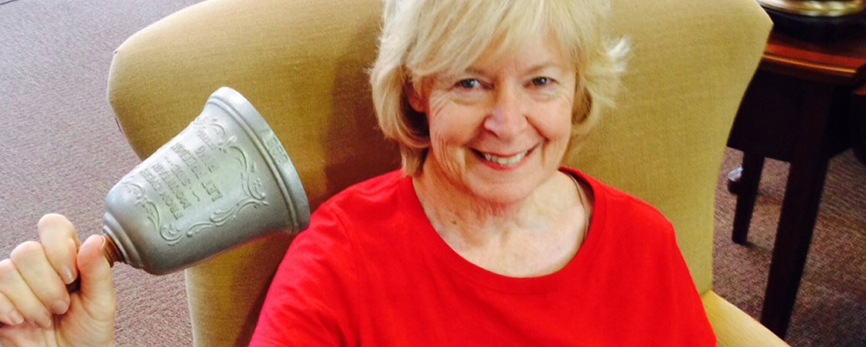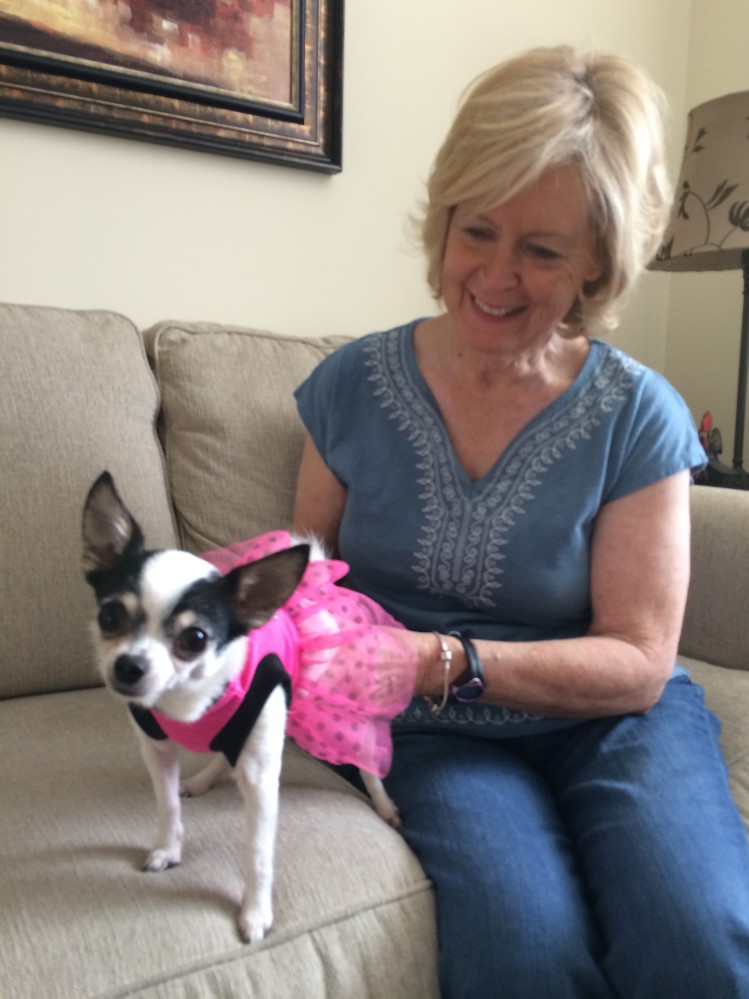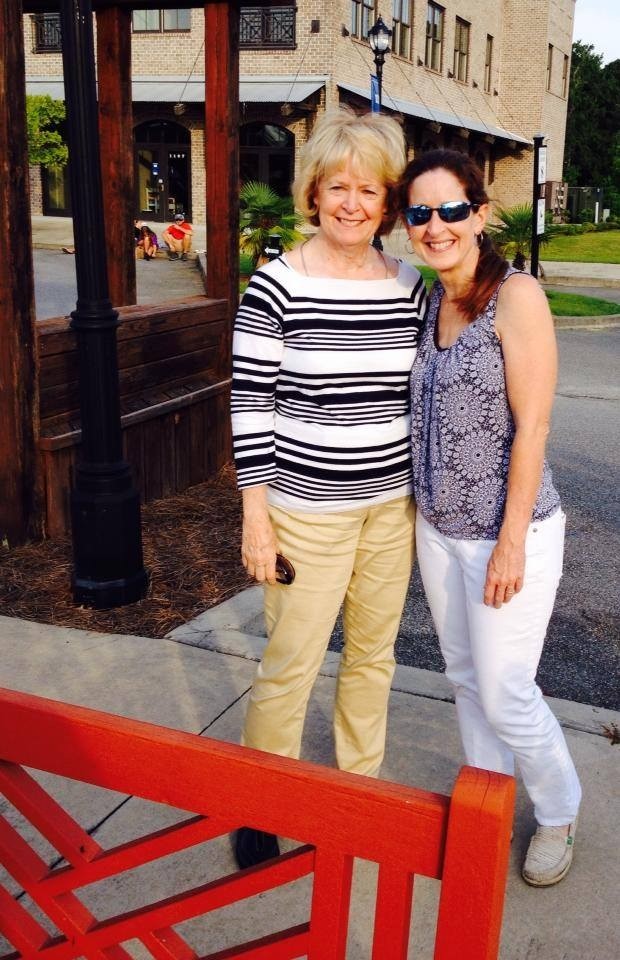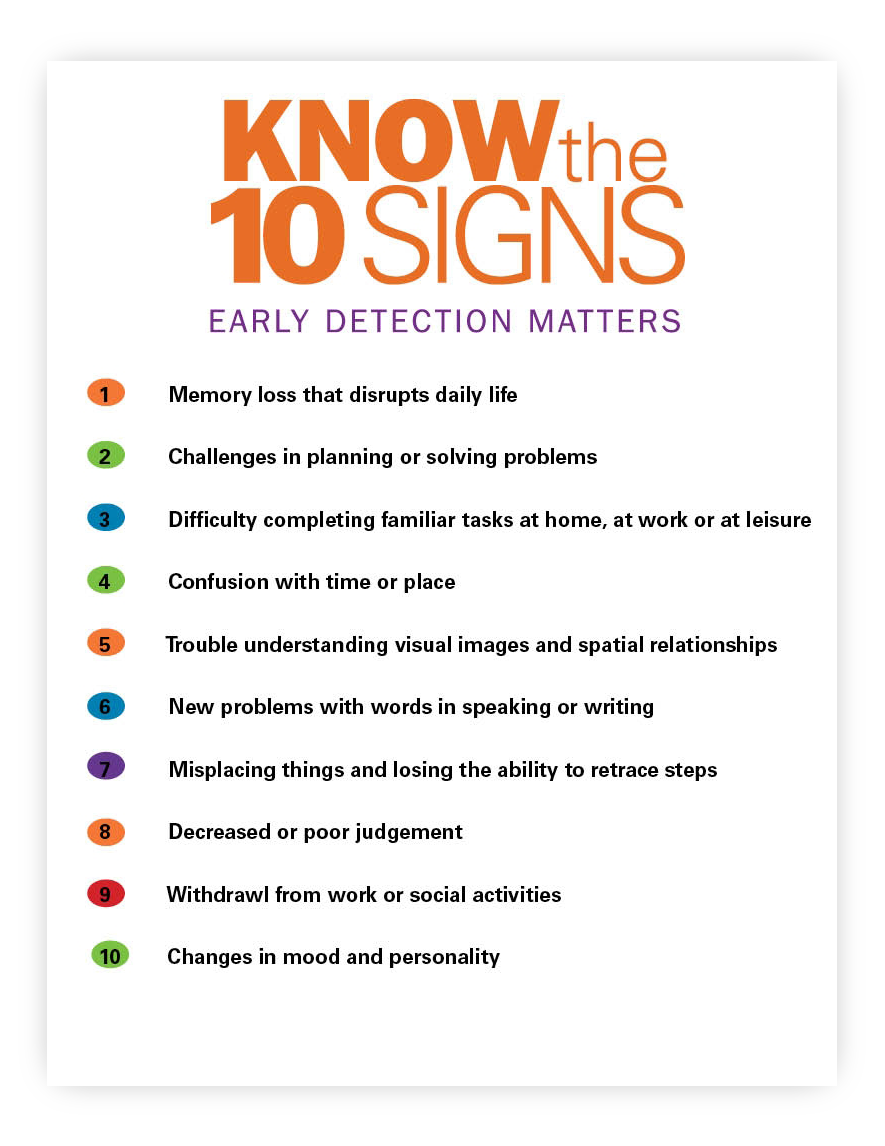Mom is Packing
We have stalled her nearly a year, and about once a month she decides she is ready to go home.
She is homesick. She is sad. She misses her yard and her flowers and her stove. And she longs to take a tub bath, just one more time. How do I tell her no? How do I tell her she has to stay here, in a place she doesn’t know, in a town she feels is not her home, surrounded by strangers? She wants to get back to the Air Force museum where she volunteered as a guide, and she wants to spend time with her friends and she wants to go shopping and wants to cook for herself and get her car back. She wants to sit on her porch and dig in her yard, and watch her Chihuahua, Sallie, run and play.
What she doesn’t remember is that she is here because a doctor diagnosed her with Alzheimer’s type dementia over a year ago.
She doesn’t remember that she no longer had any friends, as her unusual behavior had driven most of them away. She forgets that her symptoms were so noticeable that the other volunteers at the museum were routinely handing her brochures on Alzheimer’s and recommending that she see her doctor. She doesn’t remember that she could no longer cook for herself because she couldn’t follow the steps in a recipe, and that her stove was covered in burned pots and pans and boiled over residue from when she walked away and forgot she was cooking. She doesn’t remember that she no longer understood how to adjust the thermostat on her air conditioner, or that she set off her burglar alarm regularly and had the police and fire department at her house several times (She says it is because she enjoyed seeing the handsome police officers).
She forgets that my brother did his best to take care of her, with not an inkling of a clue that she had this terrible disease. He dutifully took her phone calls day and night and answered the same questions over and over again. The calls were not just once or twice throughout the day, but ten or twelve or twenty times an hour some days. He took her grocery shopping and would walk with her for hours as she wandered through the store, confused about what she should buy, and becoming angry with him if he made suggestions. He drove frantically to her house many times when she called in a panic, even at 2 AM. As her disease progressed and she had less and less social interaction, my brother became concerned that she wasn’t eating and was becoming completely withdrawn. She didn’t let him stay long when he visited her at home, and she didn’t let him see the inside of her house except her porch and living room. We found out later that was because she had trails of sticky notes and stacks of notebooks reminding her how to do each little daily task, with directions to where things were located in her house, such as the refrigerator and the pantry.
Here there are people to watch out for her.
Here there are people to make sure that she takes her medication on time, and only when it is prescribed. Here someone cooks her meals and cleans her apartment and washes her clothes and sheets. Here someone notices when she eats nothing but grilled cheese too many days in a row. Here there are people and activities and flowers and music and dancing. Here there is a sweet hairdresser who washes and styles her hair right in the building. Here there is life. There is love. There is laughter. There are tears, but there are people who care enough to shed tears with her and with us.
Last week, her decision to go home became more than an idea that could be delayed.
Mom actually has packed up everything from her shelves. She has taken her pictures off the wall, and she is putting her things into every little box and bag that she can find. She is telling the staff goodbye, and she is excited and giddy and happy, like a young girl on Christmas morning. When I stopped by to drop off her groceries, and saw this, it broke my heart. I doubted myself again. Although I have seen the results of her scans, and I know her diagnosis, I thought once again, maybe we made a mistake. Maybe she can actually go home. Then I looked around at the chaos in her room, and I watched her irrational behavior, and I saw her notes reminding her who everyone is, and where she is, and I saw that she had taped her boxes closed with pieces of sticky paper from her lint rollers. I once again reminded myself we did this to keep her safe. We did this to give her companionship and quality of life while she can still enjoy it. But it’s too much. I can’t stand to see her disappointment if I tell her she can’t go home. So what do we do? How do we handle this? What do we say?
This is what made my decision to call the Alzheimer’s support line.
We need help. I have no clue what to do next. So I called. I immediately got a real person, a local person, directly on the phone. She listened intently and took notes as I explained our situation, and I poured out my doubts and my fears, and my sorrow for my Mom and our family. Without hesitation she began to lay out a plan. It was obvious she has heard this same story and this same situation many times. Her sweet, calm assurance that we can get through this, and that we are not alone, began to gradually unravel the cord of fear deep in my heart that this situation was out of control and would end in disaster. She laid out a list of tasks for us to do today, then tomorrow, then next week. She gave me the exact words to say to Mom. She insisted that we get Mom a Medic Alert bracelet, or even a GPS tracking bracelet made specifically for Alzheimer’s patients (free of charge, paid for by the Alzheimer’s Association). I told her that Mom doesn’t wander yet, but she said she has heard that same statement many times, and that an Alzheimer’s patient doesn’t wander until they do wander. And when that happens the first time, the ability to find them is critical. I am sure this phone call will not be our last, and this lifeline will be used again. We have help. We are not alone. Thank God for the Alzheimer’s Association. Thank God for our local group. Thank God there are people generous enough to work for this cause, and to donate and to continue to fight for a cure, and to guide and support families like us.
Eventually this memory, too, will fade, and Mom will forget that she is homesick.
We will keep stalling her each day, hoping that a cure will be found soon, but not likely in time to spare her the eventual heartache and disappointment that will come. My sisters and brother and I talk constantly about which one of us will get this terrible disease, and what we will do when we get it. We take turns talking with Mom and calming her panic. She calls each one of us daily, begging us to come get her and take her home. As much as we doubt ourselves and our decisions, we know she is in the right place. She is safe. This is now her home. Meanwhile, though, Mom is still packing.






